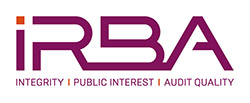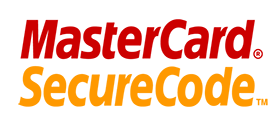A Fine Balancing Act for Market Recovery By Bernard Agulhas, CEO of the Independent Regulatory Board for Auditors
|
Johannesburg, Monday, April 20, 2020 – The global COVID-19 pandemic has not only thrust the world into uncharted waters but has demanded from governments around the world, a skillset which will enable them to navigate the ship in the right direction while keeping the balance in stormy waters. Governments cannot lose sight of the need to keep a healthy economy on the radar, if there is to be a chance of economic recovery after the national health crisis. Equally, carefully managing any health risks posed by the virus to populations, particularly the vulnerable, is an imperative. However, while the two priorities cannot be mutually exclusive; the one cannot exist without the other. Neither scenario - a healthy work force without a healthy economy or a resilient economy with a loss of a large percentage of working population – can be of any benefit to either citizens, business or government. It is not only governments that are standing in the crossfire – many other role players and professions which contribute towards the stability and resilience of financial markets also find themselves at the centre of a storm they could not have imagined just a few months ago. The audit and accounting professions are no exception. For the audit and accounting functions to operate effectively, both require healthy engagement, debate and discussion. The critical interaction between the management of the audited entity and its auditors plays an important role in assuring both the auditor or accountant that the financial information is complete and accurate. The auditor and accountant must be allowed to exercise due care and professional scepticism in respect of all the available information. That way, auditors can have confidence to express an appropriate opinion, and those relying on such opinions can trust the opinions. This does not leave much room for uncertainty. However, it is not only the financial information which must be supported by certainty, but also the environment, both present and future. The current environment does not provide such certainty – not only is everyone unsure about what the next few days and weeks will bring, but also what awaits us in the next few months. Uncertainty and the current necessary conditions in which services must be delivered could easily see the markets flooded with disclaimers and negative audit opinions, which will not bode well for public and investor confidence in financial markets and will further inhibit any possible foreign direct investment. Simultaneously, financial regulators and standard-setters, locally and globally, must maintain the integrity of the markets in terms of standards and quality, while also appreciating that it is not business as usual. Auditors and accountants have set the same standards for themselves, but, as much as they are prepared for remote working conditions, they cannot ignore the challenges they face, which might prevent them from providing the same level of confidence as before under a very different set of circumstances. Nobody should go it alone under these conditions, and if ever there was a time for the ecosystem to harmonise its efforts, it is now. The recent establishment of a COVID-19 Task Force for Financial Regulation, Accounting, Auditing and Reporting has created a multi-disciplinary platform that has been effective in not only identifying the challenges faced by all the role-players, but also in tabling and debating solutions, guidance and appropriate measures through robust and transparent discussion. This has to go a long way in overcoming trying times. Similar to other jurisdictions, rapid research and combined efforts have ensured that the required guidance on accounting and audit matters has been developed, regulators have considered any measures which they could introduce within their respective legislative prescripts, and structures which support audit committees and governance structures have issued direction on how those charged with governance should respond to a different world. Importantly, equal consideration had to be given to small and medium audit and accounting practices and how they too can be supported when their clients are facing much of the consequences of the crisis. While all parties are in agreement that the world has changed, and will probably continue to be different in future, everyone is also in agreement that only a coordinated approach will maintain standards and quality by implementing appropriate solutions. So without sacrificing quality of financial reporting and auditing, we must take the necessary steps now to ensure that confidence in the financial markets can be maintained, for a time in the not too distant future when that confidence will be most needed in order to bring the economy back to life. Ends. More about the IRBA: The IRBA is a public protection statutory body established to protect the financial interests of the public by ensuring registered auditors and their firms deliver services of the highest quality. It upholds audit firm independence to ensure that audit quality is such that it enhances the accuracy and credibility of financial performance reporting. In this way, the IRBA has an important role to play in building the reputation of South Africa as an investment market for both local and global investors and driving economic growth for the country. The IRBA also registers suitably qualified accountants as auditors, who must adhere to the highest ethics standards, and promotes the auditing profession through the effective regulation of assurance conducted in accordance with internationally recognised standards and processes.
|





